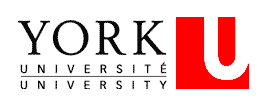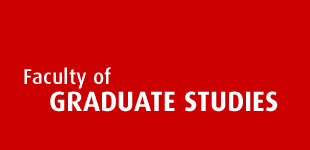 |
George C. Comninel |  |
|
POLS 6030 / SPT 6101 6.0A (Y) The Theory and Practice of the State in Historical Perspective 2016/2017 - Not taught in 2017/18
This seminar is about the history and transformation of the Western state in the course of changing social and economic contexts, between Graeco-Roman antiquity and modern capitalism. This examination of historical contexts of state and society forms the basis for a critical interrogation of classic and contemporary approaches to historical social theory and theories of the state, as well as paradigmatic conceptions of the nature of the state informing the classics of Western political thought. A central theme of the course is the historical specificity of capitalism and its distinctive political forms. One of our main objectives will be to define that specificity in relation to other forms of state and society, as well as to identify the specific historical processes that gave rise to capitalism. This means challenging a variety of influential theories of the state and its development, conventional conceptions of the relation between the "economic" and the "political", and prevailing theories of history, both Marxist and non-Marxist, which tend to mask the specificity of capitalism and the very particular conditions of its development. With special emphasis on the problem of "transitions" – from antiquity to feudalism, from feudalism to capitalism, and from early capitalism to its industrial form – we shall focus on differences between European states – notably England, France and Italy – and divergences in their historical paths. The course is conceived primarily as a seminar for the discussion of common readings and the problems arising from them. You will be expected to do the required reading, to participate in seminar discussions, and each term to give one seminar presentation and write one essay of approximately 5000-7000 words. Presentations, which should last from 20 to 30 minutes, will be expected to draw upon several recommended readings for the week (in addition to those required) to survey the literature, explore a debate, and/or advance an argument in relation to the theme and/or assigned readings. It is helpful to provide an outline of the presentation to the seminar, and perhaps to suggest points for discussion. The presentation generally provides a basis for the term essay, but you may instead pursue a different topic arising from the course that interests you. The presentations, and other seminar participation, compose 40% of the final grade. The essays are each worth 30%. The Fall term essay is due at the first class in January, and the Winter essay is due May 1. Please plan your work accordingly. Readings The required readings will be drawn from the following list of books and articles. Where appropriate, the books have been ordered for the York bookstore. Several of the readings may be accessed from this course website.
A schedule of topics and specific weekly reading assignments follows. Students lacking a solid background in Western European history are strongly advised to keep up with the readings, and may benefit from consulting various of the more general works listed in the recommended bibliography. Political science students should be familiar with Aristotle, Machiavelli, Hobbes and Locke, and will presumably be reading to refresh their memory. (No particular editions are required.) Those not familiar with these texts are advised to plan for the extra time required for preparation. Assignments are given by author and/or short title from the above list. FALL TERM I. HISTORY AND THEORY Themes: historical social theory; "progress" and historical stages; cities and markets; the nature of the state; the specificity of capitalism; the "political" and the "economic"; historical materialism vs. technological determinism; classes; "modes of production". Sept 14 Introduction and Overview Sept 21 Marx: "Preface" to A Contribution to the Critique of Political Economy; “Bourgeois and Proletarians”, from Communist Manifesto; “Labour Rent”; Hobsbawm, "Introduction" to Marx, Pre-Capitalist Economic Formations; Brenner, NLR #104 Sept 28 Weber, Chs 1-3, 6-9, 15-18 Oct 5 Wood: Democracy Against Capitalism; Origin of Capitalism, 11-33 II. ORIGINS OF THE STATE AND ANCIENT EUROPE Themes: democracy and class power; slavery and the "slave mode of production"; ruling class struggles and the Roman Empire; the municipal system; the transition from antiquity to feudalism; the specificity of feudalism. Oct 12 Fried, Evolution of Political Society OR Jared Diamond, Guns, Germs and Steel Oct 19 Anderson, Passages, 1-103; Jones, "Athenian Democracy" Oct 26 Wood, Citizens to Lords, 1-163 Nov 2 Aristotle, Politics (Books 1-5, Bk 7, Ch 1-10); Polanyi, "Aristotle Discovers the Economy" III. FEUDALISM, TRANSITIONS, AND MODERN SOCIETIES Themes: the nature of feudalism; debates on the transition from feudalism to capitalism; absolutism: a stage between feudalism and capitalism?; the Western city; the Italian city-state; "bourgeois society" vs. capitalism; agrarian capitalism; the English revolution; the Levellers and Locke; England vs. France; historical divergences and traditions of political thought; "bourgeois revolution". Nov 9 Anderson, Passages, 107-209; Wood, Citizens to Lords, 164-236 Nov 16 Transition from Feudalism to Capitalism Nov 23 Anderson, Lineages, 15-59, 85-172; Wood, Liberty and Property, 1-55 Nov 30 Machiavelli: The Prince and The Discourses WINTER TERM Jan 11 Brenner Debate, “Intro”, chs 1, 5, 6, 7 and 10 Jan 18 Comninel, “English Feudalism and the Origins of Capitalism”; Wood, Origin, 1-10, 34-146 Jan 25 Comninel, Rethinking, 53-120, 179-207; Wood, Liberty and Property, 147-209 Feb 1 Brenner, “Postscript”; Zmolek, Rethinking the Industrial Revolution, 105-163; Wood, Liberty and Property, 211-317; The Putney Debates Feb 8 Hobbes, Leviathan, (Parts I & II; Part IV, Ch. 47; Conclusion); Locke, Second Treatise IV. CAPITALISM, POLITICAL ECONOMY, AND SOCIAL THEORY Themes: capitalism vs. "industrial society"; the "formal" vs. the "real" subjection of labour to capital; capitalism, liberalism, and the capitalist form of state; Hegel and the "modern" state"; radical democracy and the critique of political economy; political economy and the critique of historical materialism; capitalism, the state, and history. Feb 15 Zmolek, Rethinking the Industrial Revolution, 1-104, 165-400 Feb 22 READING WEEK Mar 1 Zmolek, Rethinking the Industrial Revolution, 401-839 Mar 8 Thompson, "Patricians and Plebs", “Time, Work-Discipline and Industrial Capitalism”, and "Custom, Law and Common Right", in Customs Mar 15 Wood, Origin of Capitalism, 147-198; Empire of Capital Mar 22 Hegel, Philosophy of Right Mar 29 Marx: Critique of Hegel's Doctrine of the State (aka, Contribution to the Critique of Hegel’s Philosophy of Right); “On The Jewish Question”; "Contribution to the Critique of Hegel's Philosophy of Right: Introduction"; Comninel, “Marx’s Context” Apr 1 Marx: Economic and Philosophic Manuscripts of 1844; Communist Manifesto, “Proletarians and Communists”; The Eighteenth Brumaire of Louis Bonaparte |
|||||||||||||||||||||||||||||||||||||||||||||||||||||||||||||||||||||||||||||||||||